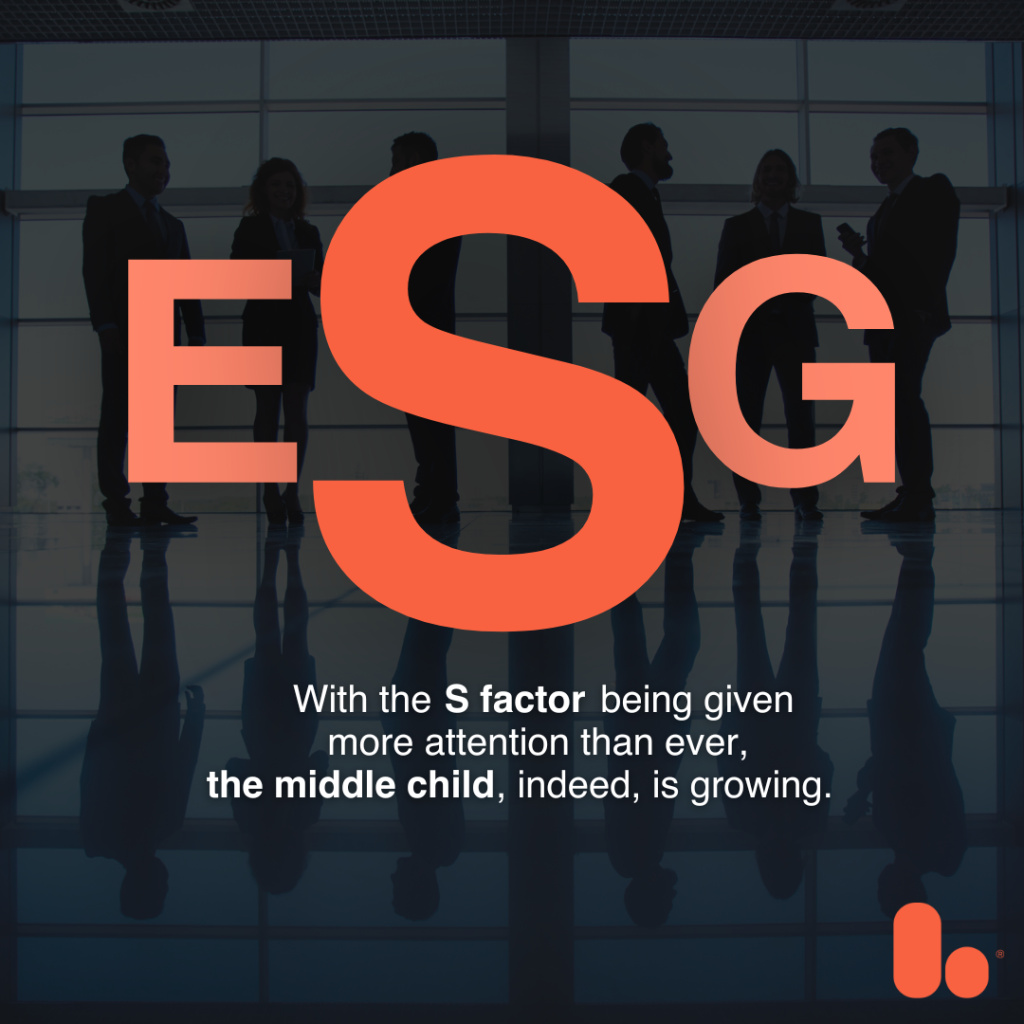ESG: The social factor
The social factor of ESG suffered from a ‘middle child predicament’, according to respondents of the Global ESG Survey 2019 of the BNP Paribas. The bank’s study found: “While experts are getting to grips with the ‘E’ in ESG, the ‘S’ remains the most difficult pillar to analyse and incorporate into investment analysis – a key part of the data challenge.”
Two years later, the social factor was still the most challenging ESG pillar to incorporate into investments, as shown by the 2021 series of the survey. The reason is the difficulty of obtaining good quality data, which, the bank said, was still the principal barrier to ESG integration. Data gathering is complicated largely due to a lack of standard social metrics. “This comes at a time when the social component is of growing importance to end investors,” the survey noted.
Gaining visibility
The social factor of ESG investment is aimed at financing business activities that uphold labour standards, diversity, human rights, gender equality, supply chain and other themes. These issues may seem abstract and challenging to qualify as data, but according to S&P Global, “[T]he market will tend to reward those companies that minimize their exposure to these social issues—selling controversial products, relying upon materials from geopolitical hot spots and using an unpredictable labour force can hurt profits and increase volatility.”
Social movements like Black Lives Matter and the #MeToo campaign have helped uptick investor interest in the second ESG factor. But due primarily to the Covid-19 pandemic, the ESG social factor is pushed even further into the spotlight. The pandemic has unveiled issues on healthcare access, living wages for frontline workers and access to technology for remote work and online education.
A meta-analysis by the New York University found that companies that effectively integrate ESG policies benefit from positive financial returns in the long term. From the ESG social factor perspective:
A recent study looked at the initial stock market reaction to the COVID-19 crisis (up to March 23) and found that companies scoring high on a “crisis response” measure (based on Human Capital, Supply Chain, and Products and Services ESG sentiment) were associated with 1.4-2.7% higher stock returns (Cheema-Fox et al., 2020).
In the Philippines for example, leaders said the government will also rely on green or ESG-labeled bonds to fund social projects, including anti-Covid programmes.
In addition, Goldman Sachs noted:
A broad range of social issues is seeing greater focus. This year has seen a surge of filings across corporate political influence, decent work, and human rights.

ESG regulations
As discussed above, access to data is a primary challenge to rating, analysing and implementing social ESG factors. This makes the ESG social factor a less measurable pillar than its E and G counterparts. However, governments are finding ways to encourage investors to look more closely at the S factor.
In the United Kingdom, for instance, the Department for Work & Pensions set up a task force last July. The task force, led by Minister for Pensions Guy Opperman, oversees the social factor in pension schemes’ ESG investments.
“Financially material social factors also pose risks and provide opportunities to schemes’ investments, and our task force will help ensure that focus on social factors continues to grow among pension schemes and throughout the investment chain,” says Opperman.
The task force monitors data and resources to assist pension funds in embedding social elements that would be financially advantageous. The DWP said the new task force will also develop standards, principles and metrics to measure the ESG social factor.
In the United States, there are several ESG-related laws with highlights on social factors, such as the Strengthening American Cybersecurity Act, which requires covered entities, like those in the communications and financial sectors, to report ransom payments and cyber incidents, and Uyghur Forced Labor Prevention Act, which prohibits importation of products from the Xinjiang Uyghur Autonomous Region of the People’s Republic of China
Reporting the Social Factor
The increased interest in the ESG social factor, which is considered the most difficult to measure among the three pillars, may mean complex disclosure and rating systems. Potentially, this is an additional reporting burden for managers.
Rating agencies, like the MSCI and Sustainalytics, must, therefore, find a way to perform good quality data sourcing and standardise metrics for the social factor.
How we can assist
ESG has evolved far beyond being a business accessory or add-on. Gradually, it has morphed into a mandatory practice for investors all over the world. This is partly due to the COVID-19 pandemic, social unrest, calls for social equity and media coverage of climate injustice and environmental problems. Professional asset managers are well-aware of the increasing demand for ESG compliance, which comes with a cost, both financial and timewise.
As a global financial services provider, Bolder guides and assists its clients in their international business and investment activities so they can effectively break barriers in this complex global marketplace.
Let’s discuss ESG investing. Reach out to us.
